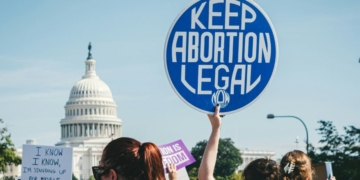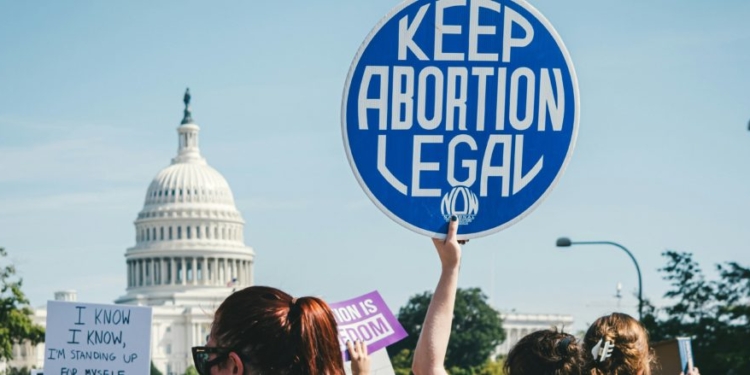Massachusetts Gov. Maura Healey issued an executive order Monday in response to the Idaho abortion ban, requiring hospitals to provide “emergency” abortions.
The executive order issued by Healey’s office provides protections for providers and out-of-state travelers coming to Massachusetts for an abortion. The Supreme Court is expected to rule on Idaho’s abortion ban in the coming days, where it will determine whether abortion procedures are protected under a federal law requiring doctors to provide “emergency” medical treatment.
The administration also expects insurers to cover abortions, as well as the expectation that the state will offer medical malpractice coverage for healthcare employees working in reproductive units, according to the executive order.
Hospitals and caregivers are required to follow the state and federal laws regarding the Federal Emergency Medical Treatment and Labor Act (EMTALA), which ensures public access to emergency medical treatment, regardless of ability to pay. Hospitals that fail to follow EMTALA are at risk of losing their license.
“With continued attacks on women’s health and freedom across the country, and the Supreme Court poised to rule any day now in a case that could prevent pregnant women from receiving emergency, life-saving treatment, we must continue to act. That’s why I’m signing an Executive Order today affirming that Massachusetts patients will continue to receive emergency abortion care at our hospitals regardless of the Supreme Court’s ruling,” Healey said in Monday’s press release.
In April 2023, Healey stockpiled mifepristone, an abortion medication, in response to a Texas federal court ruling, Alliance for Hippocratic Medicine v. The Food and Drug Administration (FDA), which blocked the FDA’s approval of the medication.
“Medication abortion is safe, effective and legal … here in Massachusetts, we are not going to let one extremist judge in Texas turn back the clock on this proven medication and restrict access to care in our state,” Healey said in a press release from April 2023.
On June 13, the Supreme Court shot down an effort by several doctors and pro-life medical associations to challenge the FDA’s rollback of safety regulations for mifepristone after a federal appeals court partially restricted access for the treatment.
The Idaho abortion ban states that a person who performs or attempts to perform an abortion will be charged with felony charges for no less than two years and no more than five years for anyone who performs an abortion unless it is to save the mother’s life, according to the statute.
The abortion ban with no exceptions was created in 2020 as part of a trigger law, which was to be implemented when Roe v. Wade was overturned in 2022. In July 2023, the Idaho legislature replaced the trigger ban’s existing defense provisions with exceptions and changed the definition of abortion, according to the Center for Reproductive Rights.
Republican states have followed in Idaho’s footsteps, implementing six-week abortion bans.
In October, the Georgia Supreme Court ruled in favor that the state’s six-week abortion ban would remain in place. Texas implemented a similar ban in 2021, and it was reported that the state saw over 16,000 more births in the year following.
Healey’s office pointed the Daily Caller News Foundation to a Monday press release.
Editor’s note: This article has been updated.
(Featured Image Media Credit: Gayatri Malhotra/Unsplash)
All content created by the Daily Caller News Foundation, an independent and nonpartisan newswire service, is available without charge to any legitimate news publisher that can provide a large audience. All republished articles must include our logo, our reporter’s byline and their DCNF affiliation. For any questions about our guidelines or partnering with us, please contact [email protected].


























 Continue with Google
Continue with Google